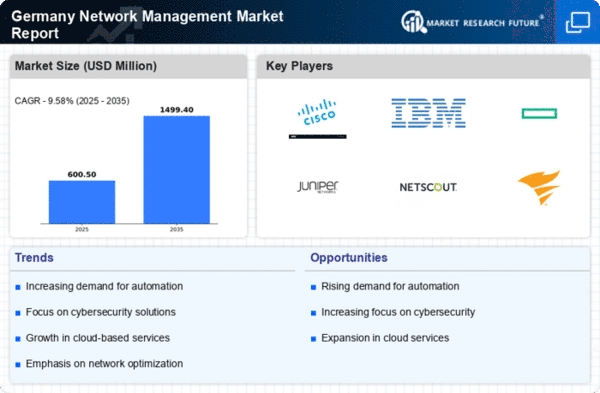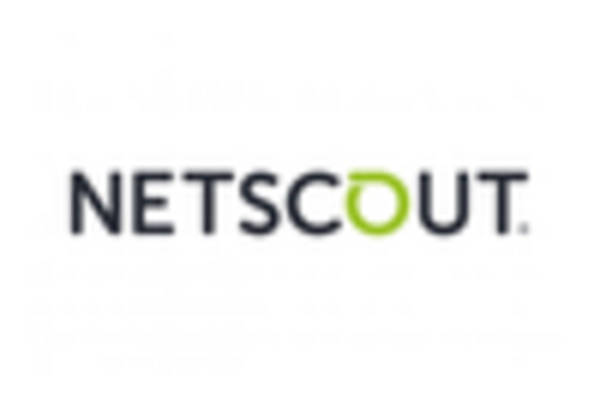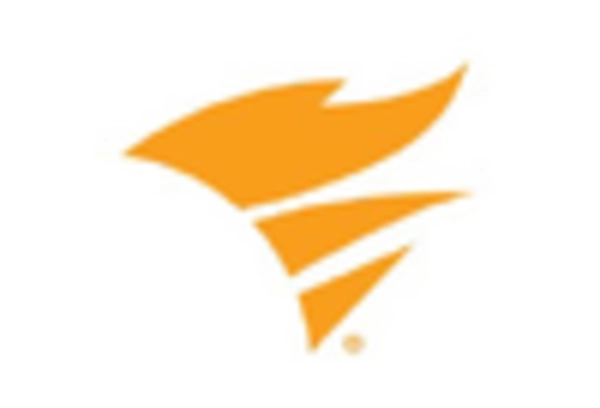Expansion of IoT Devices
The proliferation of Internet of Things (IoT) devices in Germany is reshaping the landscape of the network management market. With an estimated 30 million IoT devices expected to be operational by 2026, the complexity of managing these devices necessitates sophisticated network management solutions. Organizations are increasingly challenged to ensure seamless connectivity and security for a diverse array of devices, from smart meters to industrial sensors. This surge in IoT adoption is likely to drive demand for advanced network management tools that can provide real-time monitoring and analytics. Consequently, the network management market is poised for growth as businesses invest in solutions that can effectively manage the expanding IoT ecosystem.
Investment in 5G Infrastructure
The rollout of 5G technology in Germany is poised to have a transformative impact on the network management market. With the potential for significantly faster data speeds and lower latency, 5G is expected to enable new applications and services that require robust network management capabilities. As telecommunications companies invest heavily in 5G infrastructure, businesses across various sectors are likely to seek advanced network management solutions to leverage the benefits of this technology. The network management market is anticipated to experience growth as organizations adapt to the demands of 5G, necessitating tools that can optimize network performance and ensure reliability.
Rising Demand for Network Reliability
The increasing reliance on digital infrastructure in Germany has led to a heightened demand for network reliability within the network management market. Businesses are increasingly dependent on uninterrupted connectivity to maintain operations, which has resulted in a projected growth rate of approximately 8.5% annually. This trend is particularly evident in sectors such as finance and healthcare, where downtime can lead to significant financial losses and reputational damage. As organizations seek to enhance their operational resilience, investments in advanced network management solutions are likely to surge. The network management market is thus positioned to benefit from this growing emphasis on reliability, as companies prioritize solutions that ensure consistent performance and minimize disruptions.
Shift Towards Hybrid Work Environments
The transition to hybrid work models in Germany is reshaping the network management market. As organizations adopt flexible work arrangements, the need for secure and efficient remote access to corporate networks has become paramount. This shift is driving investments in network management solutions that facilitate seamless connectivity for remote employees while maintaining security protocols. The market is expected to grow as businesses seek to implement solutions that can support a distributed workforce. The network management market is thus likely to benefit from this trend, as companies prioritize tools that enhance collaboration and productivity in a hybrid work environment.
Regulatory Compliance and Data Protection
In Germany, stringent regulations surrounding data protection and privacy are influencing the network management market. The implementation of the General Data Protection Regulation (GDPR) has compelled organizations to adopt robust network management practices to ensure compliance. Companies face significant penalties for data breaches, which has led to an increased focus on network security and management solutions. The market is witnessing a shift towards tools that not only enhance operational efficiency but also ensure adherence to regulatory requirements. As organizations navigate the complexities of compliance, the network management market is likely to see a rise in demand for solutions that integrate security features with network management capabilities.
















